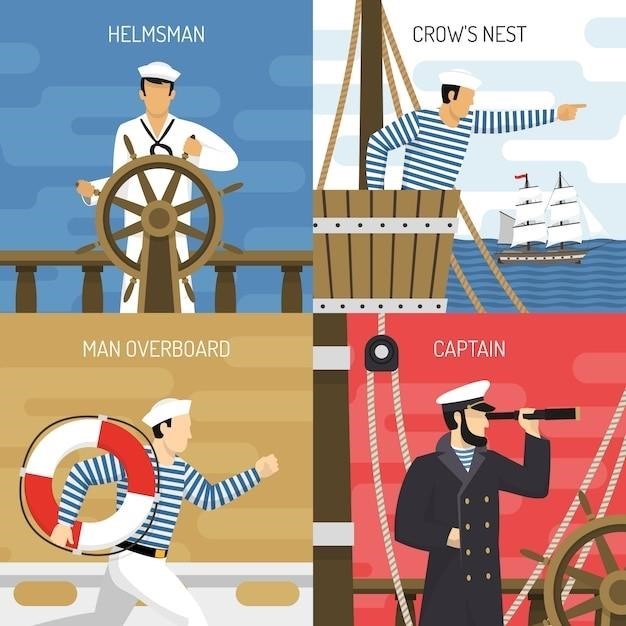O Captain! My Captain! PDF⁚ A Comprehensive Guide
This guide explores Walt Whitman’s iconic poem, “O Captain! My Captain!,” providing a comprehensive understanding of its context, structure, and impact. We delve into the poem’s historical significance as an elegy for President Abraham Lincoln, analyzing its powerful metaphors and the profound emotions it evokes. The guide includes information on where to find a PDF of the poem and other helpful resources for further exploration.
Introduction
“O Captain! My Captain!,” a poignant elegy penned by Walt Whitman in 1865, remains a timeless testament to the power of grief and the enduring legacy of leadership. The poem, composed shortly after the assassination of President Abraham Lincoln, transcends its historical context to resonate with readers across generations, offering a universal exploration of loss, mourning, and the enduring impact of a fallen hero.
This comprehensive guide delves into the depths of “O Captain! My Captain!,” unraveling its intricate layers of meaning and exploring its profound impact on both literary and cultural landscapes. Through an examination of the poem’s context, structure, and themes, we gain a deeper understanding of Whitman’s masterful use of language and his ability to capture the collective sorrow of a nation grappling with the loss of its beloved leader.
From its evocative imagery to its deeply personal tone, “O Captain! My Captain!” serves as a poignant reminder of the lasting impact of great leaders and the enduring power of words to immortalize their memory. This guide aims to provide readers with a comprehensive understanding of this iconic poem, empowering them to appreciate its timeless relevance and its enduring place in the canon of American literature.
The Poem’s Context⁚ A Grieving Nation
The backdrop for “O Captain! My Captain!” is a nation reeling from the trauma of the Civil War. The Union’s victory in 1865 had brought an end to the bloody conflict, but the nation was far from healed. The assassination of President Abraham Lincoln, a beacon of hope and unity, plunged the country into further despair. The loss of Lincoln, who had led the nation through its darkest hour, was felt deeply by Americans across the spectrum.
Whitman, a fervent supporter of Lincoln and a staunch advocate for national unity, was profoundly affected by the president’s death. The poem, written shortly after the assassination, reflects the collective grief and mourning that gripped the nation. It captures the sense of loss, the disbelief, and the yearning for a leader who had embodied the nation’s aspirations. “O Captain! My Captain!” becomes a powerful testament to the depth of Lincoln’s influence and the profound impact his death had on the American psyche.
The poem’s context, then, is not simply a historical setting but a crucible of national emotion. It is within this context of grief and mourning that Whitman’s words resonate with such power, capturing the raw emotions of a nation struggling to come to terms with its loss.
The Elegy for Abraham Lincoln
While on the surface “O Captain! My Captain!” appears to be a lament for the captain of a ship, the poem is a deeply symbolic elegy for President Abraham Lincoln. Whitman employs a powerful extended metaphor, comparing Lincoln to the captain of a ship that has weathered the storms of the Civil War and reached the shores of victory. The “ship” represents the nation, and the “captain” embodies Lincoln’s leadership, resilience, and guiding hand.
The poem’s title, “O Captain! My Captain!,” echoes the mournful cries of a nation mourning its fallen leader. The repetition of “captain” underscores the profound sense of loss and the reverence for Lincoln’s leadership. Whitman’s choice of an extended metaphor not only adds depth and complexity to the poem but also allows him to express the immensity of Lincoln’s impact on the nation.
The poem’s elegiac tone, coupled with the symbolic representation of Lincoln, transforms “O Captain! My Captain!” into a timeless tribute to a leader who steered the nation through its darkest hour. It transcends the specific context of Lincoln’s assassination, becoming a universal expression of grief and admiration for a leader who embodied hope and unity.
The Poem’s Structure and Analysis
“O Captain! My Captain!” is a three-stanza poem written in free verse, a form that allows for flexibility in rhythm and rhyme. This lack of traditional structure contributes to the poem’s raw and emotional intensity, mirroring the immediacy of grief. The poem’s structure further emphasizes the stark contrast between the joy of victory and the profound sorrow of loss.
Each stanza builds upon the previous one, gradually deepening the emotional impact. The first stanza celebrates the ship’s arrival at the port, signifying the Union’s victory in the Civil War. However, the joy is immediately overshadowed by the realization of the captain’s death, creating a stark juxtaposition of triumph and tragedy. The second stanza expresses the narrator’s desperate plea for the captain to awaken, highlighting the overwhelming sense of disbelief and loss. The third stanza focuses on the captain’s legacy and the narrator’s profound grief, emphasizing the enduring impact of Lincoln’s leadership and the lasting pain of his absence.
The poem’s use of repetition, particularly the refrain “O Captain! My Captain!”, serves to amplify the sense of loss and the narrator’s emotional turmoil. The repetition also underscores the enduring significance of Lincoln’s leadership and the lasting impact of his death on the nation.
The First Stanza⁚ A Journey Completed, a Captain Lost
The opening stanza of “O Captain! My Captain!” sets the stage for the poem’s central theme⁚ the bittersweet triumph of the Union’s victory in the Civil War juxtaposed with the profound loss of President Lincoln. The narrator, personifying the nation, celebrates the completion of a “fearful trip,” a journey fraught with danger and uncertainty. The ship, a metaphor for the United States, has “weatherd every rack,” enduring the storms and challenges of war, and the “prize we sought is won.” This victory, the preservation of the Union, is a moment of immense relief and jubilation.
However, the joy is immediately tempered by the tragic realization of Lincoln’s death⁚ “O Captain! My Captain! our fearful trip is done, / The ship has weatherd every rack, the prize we sought is won, / The port is near, the bells I hear, / The people all exulting, while follow eyes the steady keel, / The vessel grim and daring⁚ / But O heart! heart! heart! / O the bleeding drops of red, / Where on the deck my Captain lies, / Fallen cold and dead.” The triumphant arrival at the port is overshadowed by the sight of Lincoln, the captain, “fallen cold and dead” on the deck. This juxtaposition of victory and loss highlights the poem’s central conflict, capturing the nation’s emotional state in the aftermath of Lincoln’s assassination.

The Second Stanza⁚ A Plea for the Captain’s Awakening
In the second stanza, the narrator, consumed by grief, desperately tries to rouse the fallen captain, clinging to a glimmer of hope that Lincoln might somehow still be alive. The stanza begins with a powerful plea⁚ “My Captain! dear father! / This arm beneath your head! / It is some dream that on the deck, / You’ve fallen cold and dead.” The narrator addresses Lincoln as “father,” a term of endearment that reflects the deep respect and affection the nation felt for him. The image of the narrator’s arm beneath Lincoln’s head suggests a desperate attempt to comfort and support him, as if the nation itself is trying to hold its leader close in his final moments.
The narrator continues to express disbelief and longing, questioning if this is merely a dream⁚ “My Captain! my Captain! rise up and hear the bells; / Rise up, for you the flag is flung — for you the bugle trills; / For you bouquets and ribbon’d wreaths — for you the shores a-crowding; / For you they call, the swaying mass, their eager faces turning; / Here Captain! dear father! / This arm beneath your head! / It is some dream that on the deck, / You’ve fallen cold and dead.” This hopeful plea underscores the depth of the nation’s grief and its unwillingness to accept Lincoln’s loss. The imagery of the flag being flung, the bugle trills, and the “swaying mass” all contribute to the sense of a celebration that is tragically muted by Lincoln’s absence.
The Third Stanza⁚ The Captain’s Legacy and the Mourner’s Grief
The final stanza of “O Captain! My Captain!” shifts from a plea for awakening to a somber acceptance of Lincoln’s death, while simultaneously acknowledging his enduring legacy. The narrator, now fully aware of Lincoln’s passing, focuses on the depth of their grief⁚ “O the bleeding drops of red, / Where on the deck my Captain lies, / Fallen cold and dead.” The image of “bleeding drops of red” vividly portrays the violence of Lincoln’s assassination, leaving the reader with a visceral understanding of the tragedy. The repetition of “my Captain lies,” emphasizes the finality of Lincoln’s passing and the narrator’s profound sorrow.
However, even in the face of such profound loss, the narrator finds solace in Lincoln’s legacy⁚ “But I with mournful tread, / Walk the deck my Captain lies, / Fallen cold and dead.” Despite the pain, the narrator chooses to move forward, carrying the memory of Lincoln’s leadership. The “mournful tread” suggests a solemn procession, a way of honoring Lincoln’s memory and acknowledging the sacrifices made during the Civil War. The poem concludes with a powerful image of the narrator walking the deck, forever carrying the weight of Lincoln’s leadership and the nation’s grief.
The Poem’s Impact and Legacy
“O Captain! My Captain!” has transcended its original context as an elegy for Lincoln, becoming a timeless expression of grief, loss, and the enduring power of leadership. The poem’s simple yet powerful language resonates with readers across generations, connecting them to the universal emotions of mourning and commemoration. Its enduring popularity is evident in its frequent use in popular culture, from films like “Dead Poets Society” to countless other artistic works.
The poem’s impact extends beyond emotional resonance. It has served as a powerful symbol of Lincoln’s legacy, reminding generations of Americans of his unwavering commitment to the Union and his role in guiding the nation through its most turbulent period. The poem’s continued relevance highlights the enduring significance of Lincoln’s leadership and the profound impact of his assassination on the nation’s psyche. “O Captain! My Captain!” remains a testament to the power of poetry to capture and express the deepest human emotions, making it a lasting tribute to both Lincoln and the nation he led.
O Captain! My Captain! in Popular Culture
“O Captain! My Captain!” has transcended the boundaries of literature, becoming a fixture in popular culture. Its evocative imagery and powerful themes have resonated with artists across various mediums, leading to its frequent appearance in films, music, and other forms of artistic expression. The poem’s most notable appearance is in the film “Dead Poets Society,” where Robin Williams, as the inspiring teacher John Keating, recites the poem to his students, using it as a metaphor for the pursuit of one’s dreams and the importance of living a life filled with passion.

Beyond film, the poem has inspired countless musical adaptations, with artists reinterpreting its themes through different musical styles. “O Captain! My Captain!” has also been referenced in numerous television shows, books, and even video games, showcasing its enduring relevance and its ability to connect with audiences across generations. The poem’s frequent appearances in popular culture demonstrate its ability to transcend time and resonate with people from diverse backgrounds, solidifying its position as a timeless masterpiece of American literature.





